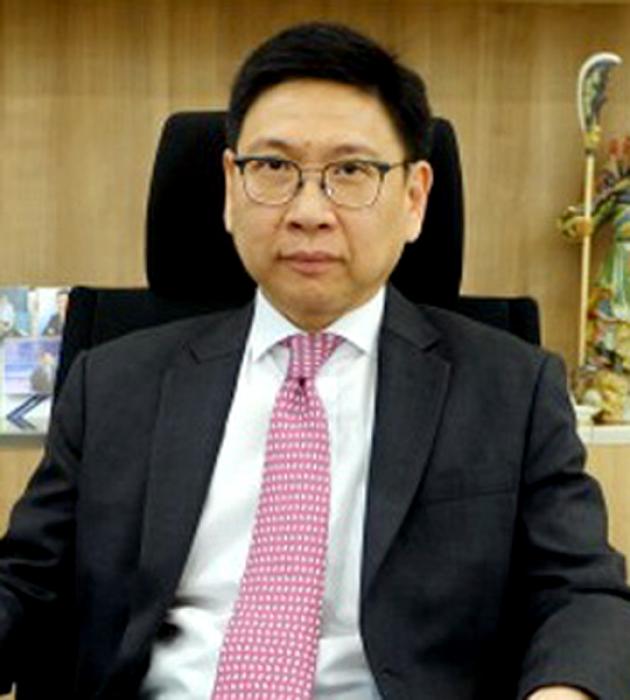Mega state holding company proposed

Corporation would be similar to Singapore's Temasek; move aimed at reining in populist poliicies
THAILAND’S Bt12-trillion-plus state enterprise sector will undergo major reforms if new legislation to set up a holding company to consolidate ownership of an initial 12 major companies sails through the National Legislative Assembly in November.
The proposed National State Enterprise Corporation would be similar to Singapore’s Temasek Holdings and would have PTT, Thai Airways International, TOT, CAT, Krungthai Bank, MCOT, Transport Co, Airports of Thailand, Thailand Post, Thanaluk Pattana Subsin, Bangkok, and Aeronautical Radio of Thailand under its umbrella in the first stage of implementation.
A portion of the state enterprises’ annual investment budget would be allocated to a non-government public fund, which will be tasked with monitoring the state enterprise sector’s reform process in a bid to avoid repeating previous political abuses and irresponsible populist policies. This was revealed by Banyong Pongpanich, a member of the state enterprise policy and supervisory committee, better known as the Superboard and chaired by Prime Minister Prayut Chan-o-cha.
Kulit Sombatsiri, director-general of the State Enterprise Policy Office, said the proposed legislation would cover 56 state enterprises whose combined assets were nearly equivalent to Thailand’s gross domestic product while their combined revenues were Bt5 trillion and investment budgets Bt300 billion.
Boosting efficiency and preventing abuses are the main objectives of the structural reform effort, said Banyong, who is also chief executive officer of Kiatnakin Bank. “In terms of efficiency, we need to ensure that procurement in the state enterprise sector, which amounts to over Bt2 trillion per year, and implementation of the combined investment budgets, worth Bt300 billion to Bt400 billion, are more transparent,” he added.
Regarding abuses by politicians, Kulit said the reform effort aimed to prevent the return of populist policies, which were not fiscally responsible. For example, when campaigning for votes political parties would have to take more responsibility for policies that would lead to the use of public funds like the rice-pledging scheme, which cost many billions of baht.
“In such a case, we expect the state-owned Bank of Agriculture and Agricultural Cooperatives [one of the 56 state units covered by the proposed legislation] to set aside a budget to pay for the rice-pledging scheme, or other sources of funds must be identified before the scheme can be implemented [to avoid a fiscal budget issue later on].
“For other public services such as free-of-charge city buses, the government will have to set aside a budget for the Bangkok Mass Transit Authority before ordering the heavily-indebted agency to provide free bus rides. BMTA’s debts are now approaching Bt100 billion.
“Populist policies are fine, but politicians must be fiscally responsible. In terms of appointing board members for state enterprises, we expect more professionalism and board members must be evaluated according to their key performance indicators.”
If the proposed legislation were approved by the Cabinet and the NLA, the shares of state enterprises held by the Finance Ministry would be transferred to the National State Enterprise Corporation, which would be operated based on a five-year plan approved by the national state enterprise policy and supervisory committee.
Banyong said the Superboard also had proposed giving 0.25-0.50 per cent of the state enterprise investment budget to a non-government agency, which would serve as the independent think-tank on public policy to help monitor the state enterprise reform process over the next several years. The focus would be on efficient use of public funds and counter-corruption practices.
The combined investment budget is estimated to be Bt300 billion to Bt400 billion so the proposed public fund would have Bt1.5 billion to Bt2 billion annually, while the value of shares to be transferred to the new state enterprise corporation would be about Bt750 billion and covering the initial 12 state units whose combined assets were around Bt5.9 trillion.
“Our model is similar to that of Temasek Holdings’s first stage many years ago,” Banyong said. “I think it’s suitable for Thailand and the record shows that national assets in the case of Temasek have grown from US$270 million (Bt9.5 billion) 40 years ago to around $250 billion currently. Temasek has yielded an average 16 per cent return annually in the past years.
“Today, Temasek has shares in Singtel, Singapore Airlines and DBS, for example. In fact, we also studied other models, including the UK privatisation, the north European model and China’s model, part of which is similar to Temasek.”
In an effort to ensure continuity of the reform process, Banyong also proposed that the state enterprise corporation’s first chairman have a fixed five-year term, with a part of the 10-person board vacating every two years.
RELATED





